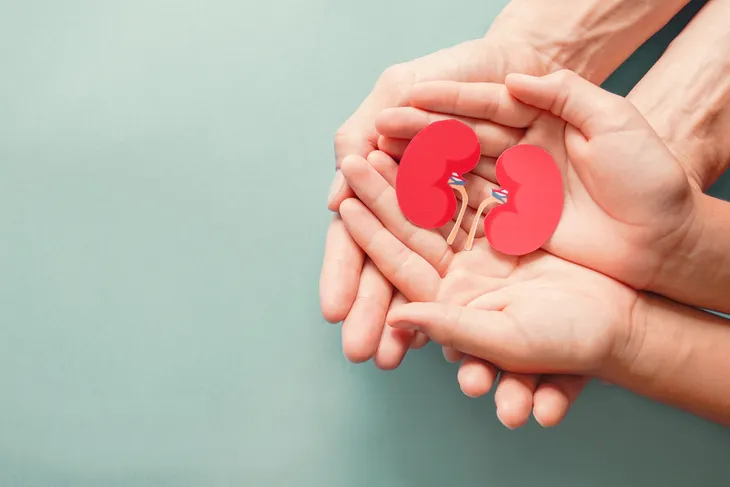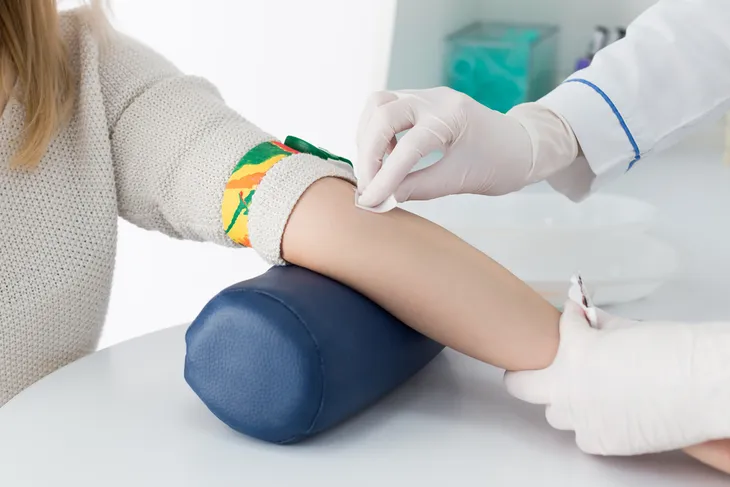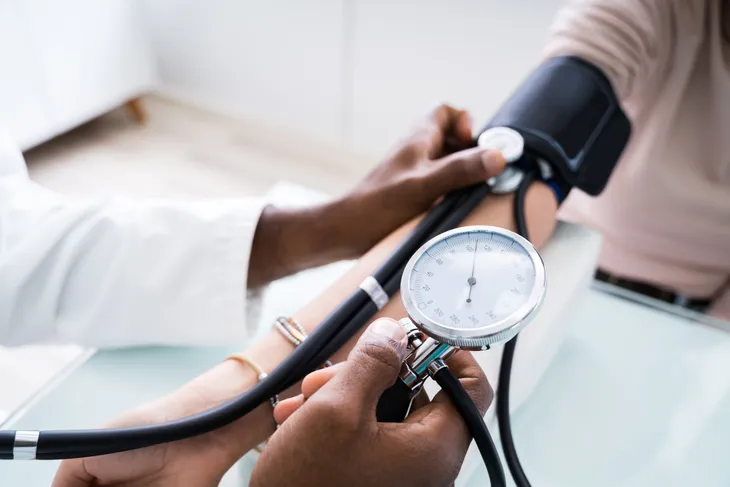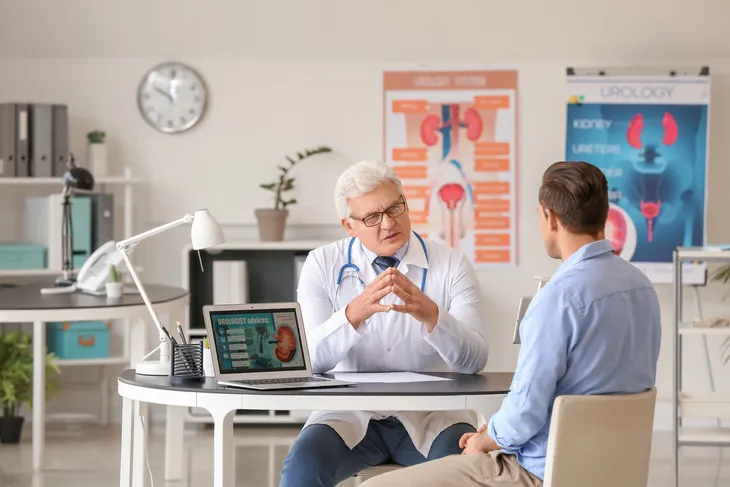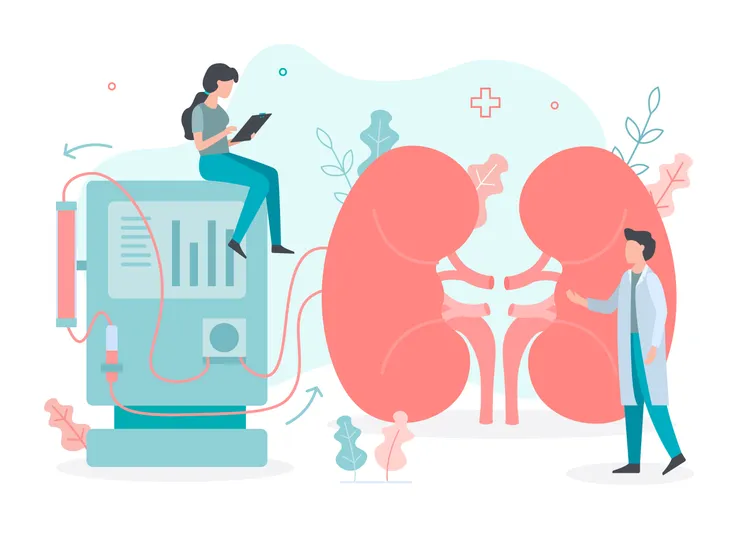The kidneys have an important job of cleansing your blood of toxins and removing the waste through urine. But when they’re not functioning properly, fluid and body waste can build up and lead to uncomfortable symptoms. Unfortunately, symptoms don’t always develop until the later stages of the disease which is why it’s known as a silent condition. The best way to protect your health is to get informed. Chronic kidney disease is categorized into stages and each stage is based on how well your kidneys are working. Let’s take a look at the different stages of kidney disease and their symptoms plus how each stage is treated. We’ll also look into if you can prevent chronic kidney disease.
How Many Stages Are There in Chronic Kidney Disease?
According to the American Kidney Fund, chronic kidney disease is categorized into five stages. The stages are based on how well your kidneys are working.
Chronic kidney disease can progress over time. The first three stages are considered the early stages of kidney disease in which your kidneys can still filter waste out of the blood. Stages four and five, however, are the late stages in which your kidneys have a harder time filtering your blood. In some cases, they stop working completely. The source says, the goal at each stage is to slow down the progression to help your kidneys work efficiently for as long as possible. Let’s take a closer look at each stage next.
Stage 1 Chronic Kidney Disease
Stage 1 of chronic kidney disease often goes undetected because there aren’t usually any symptoms. Healthline says it’s often discovered “by chance during routine blood and urine tests.” For example, protein in the urine can be a key sign that you have kidney disease.
The American Kidney Fund says that stage 1 is detected when “you have a normal eGFR of 90 or greater and mild damage to your kidneys.” The good news is during this stage, your kidneys are still working well.
How to Treat Stage 1 Chronic Kidney Disease
If stage 1 is detected your doctor may recommend a few lifestyle changes to help slow down kidney damage. For starters, they may recommend dietary changes to ensure your diet is healthy and balanced. They may also suggest regular exercise.
If you have hypertension or diabetes (which are common causes of kidney disease) your doctor will provide a treatment plan to lower your blood pressure and manage blood sugar levels. If you smoke, it’s important to quit as smoking can harm the kidneys.
Stage 2 Chronic Kidney Disease
When you have stage 2 chronic kidney disease, Healthline says your kidneys function at about 60- to 89-percent and there is mild damage to the kidneys. Since this stage is still early and your kidneys are still working well, it’s possible to not experience symptoms.
The source also says if you do experience symptoms, they may be nonspecific, meaning they can be symptoms of many other health problems. That said, you should be on the lookout for new fatigue, loss of appetite, sleeping problems, and weakness. Itchy skin is also an early sign of kidney disease.
How to Treat Stage 2 Chronic Kidney Disease
Once you’ve been diagnosed with stage 2 chronic kidney disease, your doctor will likely refer you to a kidney specialist, known as a nephrologist. While there is no cure, the specialist will work with you to develop a treatment plan to help slow or stop the progression.
Treatment will involve addressing any underlying causes such as high blood pressure, diabetes, or heart disease, says Healthline. Like stage one, the doctor will also likely recommend a healthy diet and regular exercise. They may also recommend weight loss if you’re overweight or obese.
Stage 3 Chronic Kidney Disease
Stage 3 means you have mild to moderate damage to your kidneys. It’s also split into two substages, including stage 3a and stage 3b. Stage 3a means your kidneys are functioning between 45- to 59-percent whereas stage 3b indicates your kidneys are functioning between 30- to 44-percent. This decrease in function will cause waste to build up in your body which can lead to other health problems like bone disease, high blood pressure, and anemia.
Symptoms still don’t occur for everyone during this stage but you should be on the lookout for back pain, fatigue, loss of appetite, and sleeping problems. Itchy skin, swelling of the hands and feet, weakness, and increased urination are also possible symptoms during stage 3. Without treatment, stage 3 will progress into the later stages which are more serious.
How to Treat Stage 3 Chronic Kidney Disease
Like stages 1 and 2, stage 3 is treated by addressing the underlying conditions. For starters, your doctor may recommend a low-salt diet to reduce fluid retention if you’re experiencing swelling or a lower protein diet to prevent your kidneys from working extra hard. But navigating these types of diets can be tricky so they’ll likely refer you to a dietician to ensure you’re getting all the right nutrients your body needs.
Other treatment strategies may include medication to manage high blood pressure or medication to lower cholesterol. If your bones are affected, your doctor may recommend vitamin D supplements. It’s important to work closely with your medical team to prevent your kidneys from progressing to stage 4 or 5.
Stage 4 Chronic Kidney Disease
Being diagnosed with stage 4 chronic kidney disease means you have moderate to severe kidney damage. It also means your kidneys are functioning at 15- to 29-percent. During this stage, it’s vital that you do what you can to prevent kidney failure. But unfortunately, the Centers for Disease Control and Prevention (CDC) says, “40% of people with severely reduced kidney function (not on dialysis) are not aware of having CKD.”
Symptoms are more common during stage 4 so be on the lookout for lower back pain, swelling of the hands and feet, fatigue, muscle twitches or cramps, persistent itching, and sleeping problems (such as trouble falling or staying asleep). It’s also common to experience nausea, vomiting, urinating more or less than usual, and shortness of breath. If you develop any of these symptoms, contact your doctor right away.
How to Treat Stage 4 Chronic Kidney Disease
The American Kidney Fund points out that stage 4 is the last stage before kidney failure, so it’s vital to work closely with your medical team to slow the progression. Possible complications of stage 4 include anemia, bone disease, high blood pressure, heart disease, and stroke.
Treatment is typically the same as the earlier stages with the goal of slowing progression. However, Healthline says it’s a good idea to start talking about dialysis and kidney transplant options in the event your kidneys do fail. These procedures can take a long time, so it’s good to have a plan in place as soon as possible.
Stage 5 Chronic Kidney Disease
Stage 5 is the final stage of chronic kidney disease and means your kidneys are functioning at less than 15-percent and you’ll have severe damage. During this stage, you’re close to kidney failure or the kidneys have already stopped functioning. Healthline explains that during this stage your kidneys “no longer function well enough to meet the needs of daily life.”
Common symptoms of kidney failure include back and chest pain, breathing difficulties, and decreased mental sharpness. You may also experience fatigue, a decrease in appetite, muscle twitches or cramps, as well as nausea or vomiting. Persistent itchiness, severe weakness, difficulty sleeping, swelling, and urinating more or less is also common. Not only does your risk of heart disease and stroke increase in this stage but it can also be life-threatening.
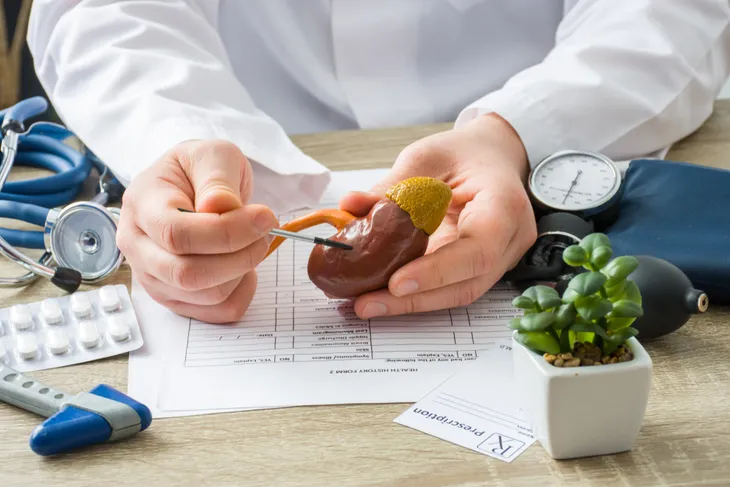 Shutterstock/Shidlovski
Shutterstock/ShidlovskiHow to Treat Stage 5 Chronic Kidney Disease
Once you’ve been diagnosed with kidney failure, the only treatment options are dialysis or a kidney transplant. Without one of these options, kidney failure will be fatal.
Dialysis won’t cure kidney disease but it can help remove waste and fluid from your blood. Healthline says there are two types including hemodialysis and peritoneal dialysis. Hemodialysis is performed at a center and typically follows a set schedule. Peritoneal dialysis, on the other hand, involves surgically placing a catheter into your abdomen. The catheter drains into a bag and you discard it several times a day.
The other treatment option is a kidney transplant which involves replacing your kidney with a healthy one from a living or deceased donor. The source explains that while you don’t need dialysis with a kidney transplant, you will have to take anti-rejection medications for the rest of your life.
Diagnosing the Stages of Chronic Kidney Disease
Your doctor can use two types of tests to diagnose the stage of chronic kidney disease. The first test is known as the estimated glomerular filtration rate (eGFR) test, which is a blood test that measures how well your kidneys are functioning. According to Healthline a GFR of 100mL/min is considered normal.
The second test is a urine test that evaluates your albumin-creatinine ratio (ACR). If protein is found in the urine, this can be a key sign of kidney damage. Healthline also says that in some cases other imaging tests (such as an ultrasound) may be necessary to analyze the structure of the kidneys.
Can Chronic Kidney Disease Be Prevented?
According to the National Health Services, chronic kidney disease can’t always be prevented. That said, there are things you can do to reduce your risk. For starters, it’s important to manage any underlying conditions that may contribute to CKD, such as diabetes, or high blood pressure. It’s also important to quit smoking to reduce your risk.
The source also says a healthy, balanced diet rich in fruits, vegetables, lean protein, and low amounts of saturated fat, salt, and sugar is important for kidney health. It’s also important to watch your alcohol intake as drinking excessive amounts can spike your blood pressure and cholesterol levels.
Further, regular exercise is another important part of a healthy lifestyle that also helps reduce your risk of CKD. Finally, the source says to be mindful of pain medications as taking them for longer than recommended can strain your kidneys. Talk to your doctor to find out how you can reduce your risk of kidney disease.

